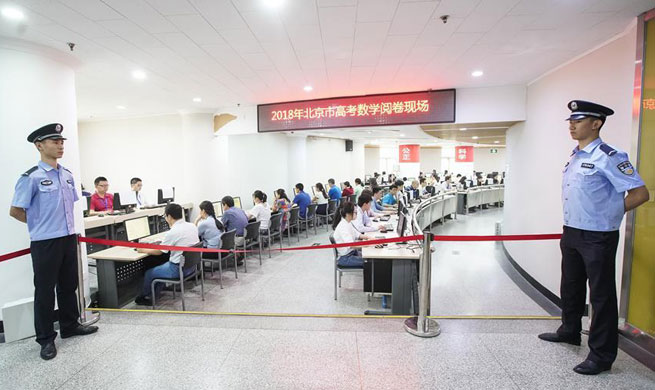by Victoria Arguello
BUENOS AIRES, June 15 (Xinhua) -- The trust of investors and analysts in the policy set by Argentina's Central Bank (BCRA) is crucial to halt the exchange rate volatility that has been plaguing the country, economist Pablo Salvador told Xinhua.
Salvador, also a columnist, was referring to the resignation of Former BCRA President Federico Sturzenegger on Thursday as Argentina's currency peso tumbled to a record low on the retail market.
Argentina's peso closed trading at 28.20 to the U.S. dollar on the retail market on Thursday.
"It is very important for the central bank to be credible, for people to believe it creates confidence and can stop this runaway exchange rate," said Salvador.
According to Salvador, Sturzenegger was removed because the central bank was not sending clear messages, which created confusion and even mistrust among investors.
Salvador said the depreciation of the peso was partly due to the increase o the interest rate by the U.S. Federal Reserve, and also because of internal variables in the domestic market.
Since Argentine President Mauricio Macri ended the restriction on the sale of dollars in December 2015, the local currency has depreciated by close to 100 percent.
"We will see what happens in the coming days...when the first part of the IMF loan will be given (to Argentina). This should steady the water a bit," said Salvador.
The International Monetary Fund (IMF) loan to Argentina will last 36 months and will be paid in installments. The first share will be 30 percent of the total, around 15 billion dollars.
Former Finance Minister Luis Caputo replaced Sturzenegger as the president of the BCRA.
On Friday, Argentina's Treasury Minister Nicolas Dujovne said his team was working with the new BCRA president to stabilize the exchange market.















